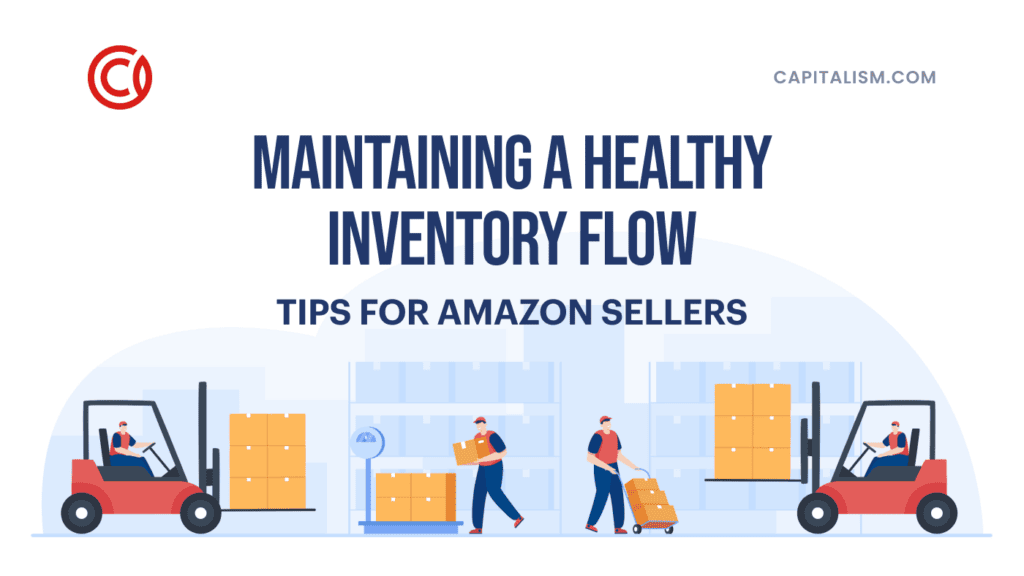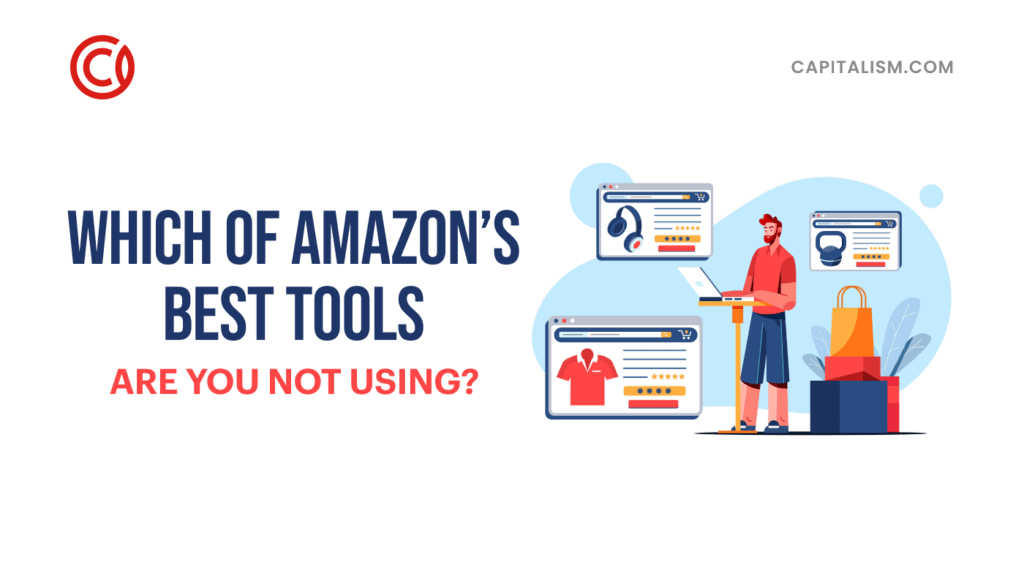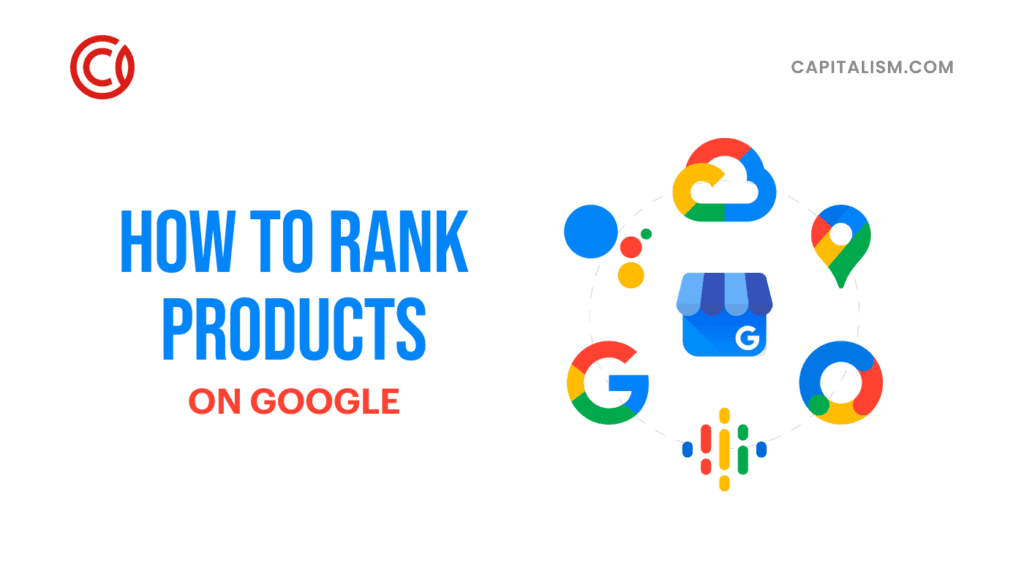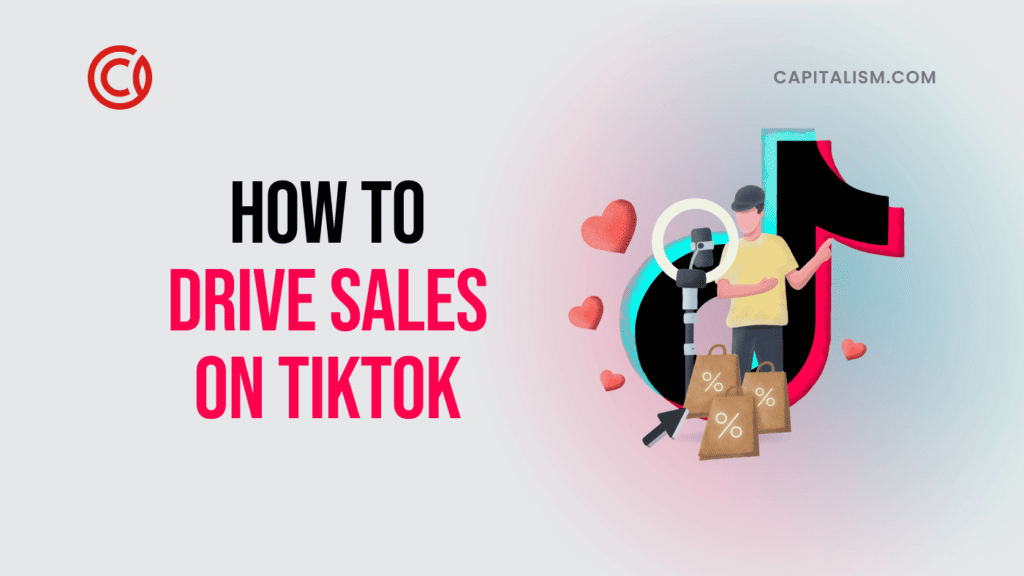“Buy low, sell high” is the motto for Amazon arbitrage. Here’s how to make money on Amazon by merely using your savvy shopping skills to stock your arbitrage side hustle.
Do you have a knack for finding the best deals? If shopping clearance racks and stacking money-saving offers are your favorite pastimes, you may be ready to add “reseller” to your growing list of job titles. And guess where you can earn a brag-worthy fortune as a reseller? Amazon, of course. As the world’s largest marketplace, there is a buyer for just about anything. If you can source in-demand goods, you’ll find customers willing to purchase them.
What once started as a quaint online book store has now become one of the most well-known and successful companies around the globe. In 2019, Amazon ranked number three in the list of best-performing companies, with a market value of $916.1 billion. And to make those numbers tug at your entrepreneurial heartstrings a bit more, third-party sellers account for about 53% of Amazon’s sales.
Now is the time to become an FBA seller and enjoy a healthy share of those profits. Even if you don’t have an investor backing you or an innovative invention, you can still bring home plenty of bacon to your family. Amazon arbitrage in 2020 is sure to give many eager entrepreneurs the boost they need to scale a successful business.
What Is Retail Arbitrage?
Retail arbitrage, referred to by the pros as RA, is the business of sourcing products for cheap and selling the items elsewhere for a profit. It’s the same idea as the kid in high school who bought candy from the drugstore and sold it to the student body for double the cost—well, at least until the principal caught wind and shut down his operation.
However, unlike this example, it’s possible to make a decent income with an Amazon arbitrage side hustle. While most people don’t stay in the reselling business for the long run, it’s a sound way to earn extra income, especially if you want to pay off some debt or fund another business.
Is retail arbitrage allowed on Amazon? Yes, and many of the most successful resellers fatten their piggy banks using the online giant’s platform.
It’s no secret that FBA is one of the most rewarding programs for budding entrepreneurs. And if you enjoy the thrill of the hunt, you may discover retail arbitrage on Amazon in 2020 is the perfect niche for you. Imagine spending your free time shopping for bargain-basement deals, and flipping them for a considerable profit. Sound too good to be true? The truth is, reselling on Amazon has become a lucrative job for many.

Places to Source Arbitrage Goods
No Amazon arbitrage business will succeed without enough products to sell, and finding those diamonds in the rough can be tricky. Knowing where to begin your sourcing search is critical. Ask any successful reseller, and they’ll tell you liquidation stores remain a top destination. These stores buy overstock from other major retailers and sell them to the public for unbeatable prices. If you live close to a liquidation outlet, you should browse their inventory regularly.
Other sellers look for bargains in unsuspecting locations. Thrift stores, estate sales, garage sales, and other second-hand outlets often have cheaper than cheap deals. And you never know what you may find.
One highly successful RA’er, Jessica Larrew, searches for rare, limited-market items. Even if you purchase them at retail prices, you can still inflate the price on Amazon and make a profit. If something is hard to find, some buyers will pay a premium to own it.
Before you jump headfirst into Amazon’s deep, often turbulent waters, you need to know a bit about reselling on the site. Those who go all the way know how to play the game. It’s a bit like the stock market—you want to buy low and sell high. But, similar to investing in Wall Street, RA is also a gamble. There is always a chance you could lose your investment. However, starting a reselling business doesn’t require a tremendous amount of upfront capital, and you can begin with as little or as much inventory as you can afford. Because of this, many entrepreneurs see RA as a low-cost, low-risk venture.
Is Arbitrage Legal on Amazon?
Unlike other online websites, Amazon creates an opportunity for even the most insignificant entrepreneur to turn a part-time business into a full-time income. However, many of the third-party sellers don’t have access to vast amounts of capital or products, and they need another way to source products to sell. Arbitrage is an excellent choice for many of these entrepreneurs looking to test out their selling capabilities on the site.
Amazon does allow arbitrage on its platform. To be clear, the retailer doesn’t care how you source your products, as long as you’re not running an illegal operation. It may surprise you to learn how many of Amazon’s third-party sellers rely on reselling to keep their FBA accounts afloat.
The Amazon retail arbitrage policy may be loose, but you can’t just sell anything you want on the site. Before you run to a liquidator and buy out their inventory, you need to know what you can and cannot sell through Amazon FBA.
Restricted Items on Amazon
Sellers need to be well-versed of what goods fall under Amazon’s restricted products list. Anyone caught bypassing this list is subject to corrective actions, including termination of their seller account. Although you may obtain permission to sell some items from this list, a pre-approval may be necessary to prove the authenticity or safeness of items.
Here is a short sampling of restricted products, but always check with Amazon for the complete and current list:
- Alcohol
- Art - both fine art and home decor
- Cosmetics - including skin and hair care
- Electronics
- Food and beverages
- Jewelry - including precious metals and gemstones
- Horticulture - including plant and seed products
- Postage - both meters and stamps
- Surveillance equipment
- And much more
The purpose of Amazon’s list of restricted items is not to punish the seller, but rather to protect the buyer. Amazon strives to create an environment where buyers feel safe purchasing products from a range of third-party sellers, and complying with the rules of restricted products helps to ensure ethical selling practices.

Prohibited FBA Products on Amazon
This online megastore also has a list of prohibited goods for anyone participating in the FBA program. Amazon’s FBA prohibited products list includes:
- Alcoholic beverages
- Vehicle tires
- Gift cards
Amazon will also not accept any defective units or products that require additional prepping or packaging. While the site does allow used goods, the seller must label the condition clearly, with any damage noted.
Now, before you rush off and purchase a ton of products to sell as arbitrage on Amazon, you need to consider other legalities. While the marketplace does allow this form of reselling, you must be careful to only source brands you can legally flip. Certain brands only allow authorized dealers to sell their products, including many haircare and high-end purse manufacturers, for example.
If you get caught selling as an unauthorized dealer, the brand may take action. A manufacturer could report your listing as counterfeit or inauthentic. If they do, Amazon may pull your listing without compensation. As a seller, it’s up to you to do your homework to make sure you can sell a specific item or brand without any legal recourse.
The majority of sellers who deal with these problems didn’t pay attention to the fine print. Perhaps they ignored the restricted and prohibited goods list and had their items rejected by the site. Others may have listed products without realizing they needed to be an authorized dealer. As with any venture, you should always research beforehand and not assume anything. If you ever have any questions about reselling on Amazon, always ask before you begin sourcing products.
Can You Make Money with Retail Arbitrage?
With well over 100 million Amazon Prime subscribers, it’s no wonder why the FBA program is so popular with entrepreneurs. Where else can you potentially reach that many customers with a single listing?
When you sign up for FBA, you gain Prime privileges. Your listings automatically receive the coveted two-day shipping, and you don’t have to worry about renting a storage facility. Instead, you pack and ship your goods directly to a designated warehouse, and the retailer stores them for you. Whenever a product sells, Amazon handles the payment, ships the product, and even manages any returns. The small fee you pay in return is well worth the hassle and headaches you avoid.
You can make decent money with retail arbitrage, but you have to have the drive and determination to seek out deals. Hitting clearance sales before anyone else is a must, and liquidation stores will become your best friend. Prepare yourself to buy products in bulk, and set aside enough cash to fund your sourcing endeavors. With a bit of hard work, you’ll be able to turn a modest, if not jaw-dropping, profit.
Hypothetical Retail Arbitrage Scenarios
- John buys 12 popular action figures off a Walmart clearance shelf for $5 apiece. He’s able to list and sell each unit for $20 on Amazon, netting a 75% ROI.
- Tom sources 20 high-quality baby strollers at the low price of $60 per unit. He resells them through FBA for $105 each. After he clears his inventory, John has a gross profit of $900.
- Lisa scores a great deal and spends $200 to buy ten pairs of trendy shoes. She sells them on Amazon for $50 a pair, earning her an impressive 150% ROI.
Anyone participating in arbitrage can make a similar profit. Of course, you’ll need to figure in any additional costs, including shipping your products to Amazon and listing fees.
Those who earn the most using RA never let a good deal slip through their fingers. Instead, they work around the clock to procure more inventory. The best sellers know what they should list and which items don’t sell. You should always look at the top-ranking products to get a feel for what buyers want. Remember, just because something is cheap doesn’t mean you’ll make a profit from it.
Take note; however, the top FBA sellers usually have their own line of private label products. If you don’t have the energy to source and private label products of your own, arbitrage is the next best way to earn some extra cash as an FBA seller. Most sellers use this method to generate a short-term income, as finding deals worth reselling isn’t always easy. Plus, the constant hustle and bustle can grow tiresome. But if you want a stepping stone to a longer-lasting cash stream, RA is an excellent place to start.
What Is Online Arbitrage?
Let’s get real for a moment: retail arbitrage requires a lot of footwork. If you want to stay relevant in the FBA world, you need to have a full inventory of hot products to sell. To make this happen, you’ll find yourself traveling from store to store in search of the best deals. Sleeping in will no longer be an option because you’ll need to beat all the other deal-seekers and extreme couponers.
While some people love the thrill of the hunt, others find it grueling. Some shopping sprees may result in tons of great bargains, yet others may leave you empty-handed. You may spend a fortune on gas, only to come home with a limited selection of goods. Luckily in today’s internet-driven world, you don’t necessarily have to do all your clearance searching in person.
Online arbitrage is very similar to RA, with one key difference—you source your products via the internet instead of in brick and mortar stores. Not only does this prevent wear and tear on your car, but it also makes it possible to search for products at all hours. After all, the internet never closes.
Often, sellers who live in rural areas with limited access to big-box retailers prefer the online route. Others use online sourcing in combination with retail shopping. Both methods are highly effective, and you may prefer one over the other.
What Is Online Arbitrage Sourcing?
As an arbitrage guru, you’ll spend much of your free time sourcing products and building your inventory. After all, you can’t turn a profit unless you have current listings. When all the stores close for the day, you can still source more inventory online.
Online sourcing is just what it sounds like—buying low-priced goods from online retailers so you can flip them for a profit. With the internet at your fingertips, it’s possible to search high and low for amazing deals. Still, many arbitrage experts agree big-box retailers are your best bet.

The Top Online Arbitrage Sourcing Websites
While there is virtually an infinite number of retail websites, not all are ideal for sourcing inventory. After all, you want to find the lowest price possible. Big-box stores remain at the top of the list when it comes to sourcing; however, many lesser-known sites also offer great deals. Some of the most popular are:
- Walmart.com
- Target.com
- HomeDepot.com
- BestBuy.com
- JCPenney.com
- Kohls.com
- Overstock.com
- QVC.com
Now, you shouldn’t feel obligated to just stick to this list, but these are good stores to help you get started. Do remember, however, since these retailers are well-known, they often get flooded with resellers like yourself. Always keep your eyes open for any hidden gems—you never know where you may source your next top-seller.
There are ways to save even more money on online deals, and as a reseller, every penny counts. Before you make a purchase, be sure to scour the internet for any additional coupons. You may be able to stack deals, such as percentage-off codes or free shipping. Always take advantage of these offers. The more money you save now, the higher your ROI will be in the end.
Don’t just rely on the retailer to inform you about coupons. It sometimes requires deeper digging to locate the high-value codes. RetailMeNot will help you find current coupons or sales at your favorite sites, and Honey automatically applies the best coupon code to your cart.
You can also combine your online shopping excursions with other money-saving tools. For example, some affiliate sites offer cashback on purchases made at select retailers. Rakuten, formerly eBates, is perhaps the best-known cashback site. Others include Ibotta, Swagbucks, and Upromise.
Remember, the cheaper you buy now, the more you’ll make later. Taking advantage of online sourcing is one way to grow your inventory quickly. However, you should never turn down helpful tools that will help you locate the best deals possible. One of the most popular reseller tools is Tactical Arbitrage.
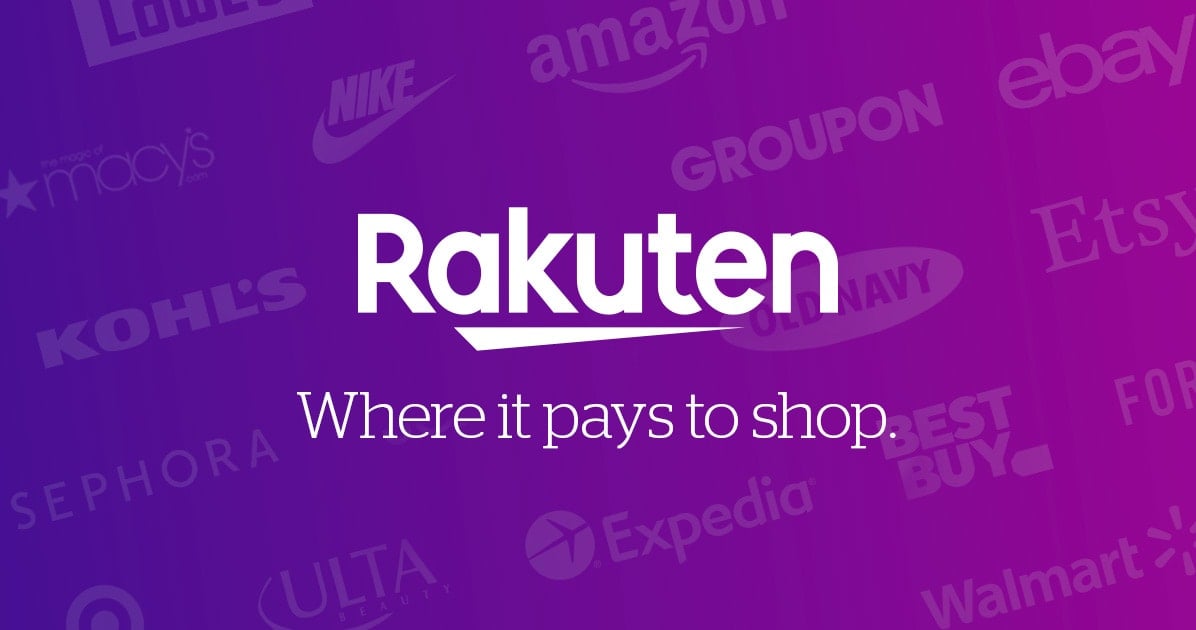
How Does Tactical Arbitrage Work?
Those who have been in the reselling business for any length of time know about Tactical Arbitrage. Even if you read about arbitrage on Reddit, you’ll find posts talking about this invaluable tool. What is it, and how will it help you scale your business?
Anyone with an Amazon Professional Seller account knows making money on the site isn’t sheer luck—it’s about knowing how to play the game. You need to understand all the rules and metrics, but finding out what sells isn’t easy for a novice. Even if you do know what to buy, what’s a fair selling price?
Tactical Arbitrage takes the guesswork out of sourcing and pricing products to ensure you can sell them quickly on the marketplace. It’s a software tool that searches over 1,000 retail sites, looking for bargains before others find them. Even better, the software uses a slew of algorithms to calculate fees, look for discounts, and estimate the shipping costs of different products. Most people who rely on this program see a sizable increase in their ROI.
Moreover, Tactical Arbitrage wants you to stand out from the crowd. You can rely on the program to filter competitor stock levels and prices. After all, it’s tough to make money in an oversaturated market—you need to be original. By taking the guesswork out of sourcing in-demand products, you won’t worry about your inventory collecting dust in one of Amazon’s massive warehouses.
Whether you want to admit it or not, you’re a human who needs to rest—not some pre-programmed android who always has a full battery. Tactical Arbitrage can search for deals for up to 48 hours straight so you can get some shuteye. You’ll no longer worry about missing an unbeatable sale because you visited dreamland for a few hours.
Since Tactical Arbitrage automates your sourcing, you’ll have more time to devote to other aspects of your FBA business. For example, you can work on creating more eye-catching product listings and descriptions to boost your search rankings. You’ll also be able to provide better customer service and create rabid fans who make repeat purchases from your shop. Close your eyes and imagine all the ways streamlining the sourcing process will increase your bottom line.
This program has helped countless arbitrage sellers scale their business. No matter if you want to resell products part-time or need something more, you may find Tactical Arbitrage to be a helpful tool. You can test out this list free of charge. As a new user, you’ll enjoy a free one-week trial to determine if it’s the right fit for your business. Monthly and annual subscription rates are also very affordable. There are different paid plans available to fit any FBA reseller budget.
While you don’t need any special software or tools to start your business, many sellers report an increase in sales after using one. If you want to climb to the top of the arbitrage ladder, it’s wise to utilize any help you can find.
Is Arbitrage on Amazon the Right Choice for You?
Amazon sellers have different end goals in mind. Some desire to create an empire selling hundreds of units each day. Others simply want to put more cash into their bank account for a rainy day. No matter where you fall on this vast spectrum, arbitrage may be a helpful starting point.
As long as you have some money set aside to fund your first inventory purchase, you can begin this endeavor. Make sure you don’t jump out of the plane without a parachute, however. Before you source products, take a look around Amazon to see what’s selling. Make sure there is a thriving market for the products you want to buy.
Don’t get discouraged if your inventory doesn’t sell right away. It may take a few weeks or months to clear your stash. If desired, you can leverage your prices to push unpopular products, but in most cases, time is on your side. Of course, there is always some risk, but when compared to other entrepreneurial ventures, this one is very low-risk.
So, if you enjoy digging through bargain bins in search of the deal-of-a-lifetime, arbitrage may be the perfect business for you. Remember, most resellers start small and scale with time. Once you become an FBA expert, you’ll watch your profits grow beyond belief.


